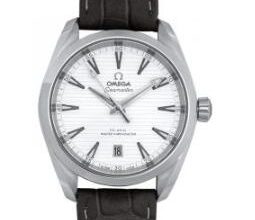Tips for Making A Perfect Cup of Coffee

Most people love coffee so much that they do not want to go through their day without drinking even just a cup. This proves how a perfect cup of coffee, especially in the morning, can set the mood for you the whole day. However, if the coffee shops are closed, you might not be able to rely on a barista to provide your daily cup. That being said, you might be interested in making a perfect cup of coffee yourself. Additionally, it can enable you to save some money, depending on how much coffee you use each day.
It is actually simpler than you might think. As a means of avoiding bitterness or odd flavors in your coffee, you have to remember to store your beans properly and use the best filters. Whether you prefer a store-bought blend with a drip coffee maker or estate-grown beans and a complex brew process, you must incorporate proper ways of making your own cup of coffee. From getting fresh and high-quality beans; finding the right roast; grinding your own beans; choosing the right brewing method; and using fresh filtered water for your coffee, will definitely provide you a flavorful, pleasant cup of coffee every time.
Making coffee is not a tough process, but creating the perfect cup is a whole other challenge. Realizing that is the reason it is crucial for any coffee enthusiast to make the perfect first cup of the day — once you have made the ideal cup, you would not actually want to try anything else. In the process of learning how to make one that suits your palate, you have to take some time to understand what went into making a perfect cup of coffee, while appreciating all the subtle differences you can find in the coffee beans manufactured from different states across the world. And when it comes to specialty coffee and expensive blends, no two coffee brands are actually the same.
The appropriate roasting, grinding, and brewing techniques combined with excellent beans can provide a delicious and perfect cup of coffee. Although it can seem like an easy task, you need to master this skill; being capable of roasting and blending beans for the best flavor profile.
Get Fresh, High-Quality Beans
Without a doubt, coffee tastes finest when consumed soon after it is roasted. Although you can roast coffee beans yourself, buying from a local roaster is the best way to guarantee you are getting the freshest beans possible. Additionally, you must avoid purchasing coffee in quantity from supermarket display containers. The biggest taste destroyers for roasted beans are oxygen and bright light. So unless the shop is vigilant about selling fresh coffee, the storage tubes get coated with coffee oils. Which then deteriorates over time. A better choice is frequently coffee beans that are sold in strong, vacuum-sealed bags. Then, they are packaged by roasters that care about quality.
Finding high-quality, premium coffee is necessary to make the perfect cup of coffee because coffee is only as excellent as its quality. Some of the best coffee in the world will have certificates indicating that it is single-origin, organic, or cultivated at an elevation. However, the most crucial step is to purchase whole beans of coffee so that you can have freshly ground coffee. Additionally, keep in mind that the likelihood of bitter or oily results increases with bean age.
Find the Right Roast
In making a perfect cup of coffee, you should pick a roast that you are most comfortable with. Especially when brewing yourself the ideal cup of coffee so that you are aware of the flavor, acidity, and body to expect. If you do decide to try a new roast, pick one that is comparable to the one you like best. For instance, if you like your coffee medium-roasted, look for a medium-light or medium-dark roast. It is recommended to find a medium roast in whole bean form since the majority of users use drip-brew coffee.
There is no precise rule on the time you will be drinking roasted coffee; but you can rely on a fresh roast to deliver a high-quality outcome. In the search for the ideal roast and roast age, you might want to ask questions about it to the one selling you the roast. You should try consuming some coffees within five days of the roast date for more optimal results. However, many other coffees retain their quality reasonably well for roughly a month following the roast date. But then, the flavors you get depend entirely on the beans’ response to water. Also, on how porous they grow over time.
Take attention to how it pours into the cup to determine if your beans are stale. You have probably waited too long to use your coffee if there is not a head — that faint foam that bubbles at the top of your cup.
Grind Your Own Beans
It is true that coffee almost immediately starts to lose quality upon grinding. The brews that taste the best are made with freshly ground beans. Pricey burr mills are preferred to use by those who actually make coffee. But then, those inexpensive electric “whirly blade” grinders would also work well. Especially if the mill is rocked while grinding to achieve a fine, uniform particle size.
You should nearly always aim for a finer grind. This is done to ensure you are receiving the maximum flavor from an older roast. Additionally, blending coffee grounds can defeat your pursuit of the ideal cup. Clean your grinder after each use to prevent this. Even if it is just a quick tap-tap to the unit to shake off bean residue. And even though it may not be visible, the remaining coffee grounds from brunch last Sunday will significantly increase the bitterness of your freshly roasted coffee.
Choose a Brewing Method
While the quality of the beans is important, the brewing process is undoubtedly the most crucial step in preparing the ideal cup of coffee. It is important to select a brewing technique that enhances the inherent attributes and flavor of coffee because every method affects how the beverage tastes. You have to choose whether you would want to use light, medium, dark, or even French or Italian roast coffee beans for the perfect cup of coffee you will be making.
Use Fresh, Filtered Water
Nothing can destroy a pot of coffee more quickly than chlorinated or flavorless tap water. Tap water may contain minerals, salts, and other compounds like fluoride, which will unintentionally flavor your coffee. Serious coffee drinkers use bottled spring water or tap filters with activated charcoal or carbon. Coffee made with distilled or softened water is bad as the minerals in good water are essential. And the fewer the minerals in the water, the better.
Key Takeaway
The definition of a perfect cup of coffee is subjective. Beyond the energizing effects of the caffeine rush in the morning, the fun of coffee is how much experimenting there is. It is the ultimate practice in trying and failing. And to actually find the perfect cup of coffee, do not be hesitant to experiment with different grind sizes, coffee roasts, water temperatures, and brew techniques. Let your sense of taste serve as a guide to a better-tasting cup.






